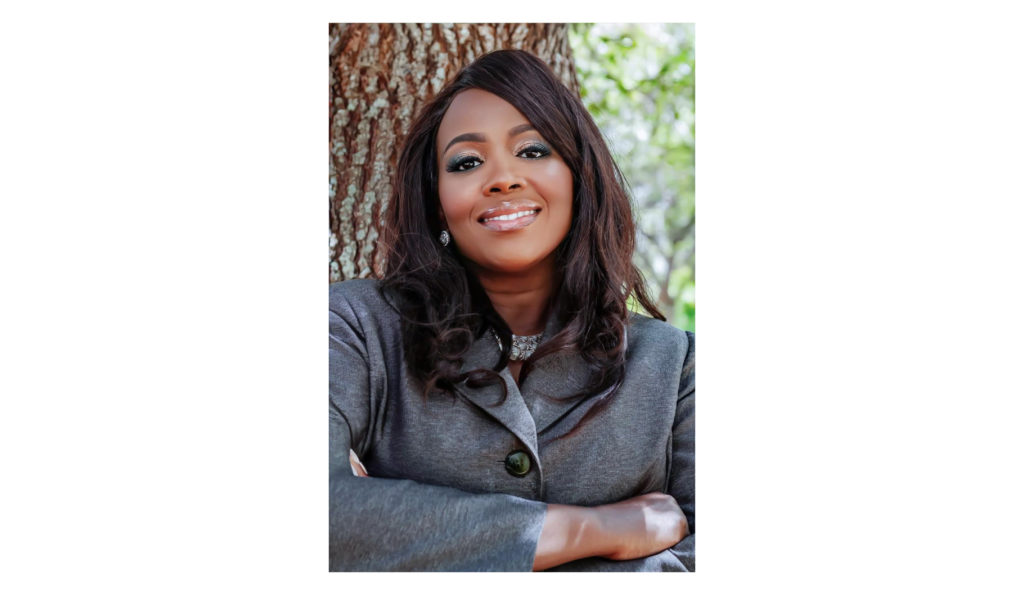Dr. Mary L. Young has been a highly sought voice as an acclaimed educator for almost thirty years, serving in roles as a teacher, a principal, a school superintendent as well as having a key role in the South Carolina Department of Education. However, with her newfound celebrity as the bestselling author of The Prayer of Achsah: Getting Your Breakthrough From God, now Young is best known for her work as an influencer and motivator, sharing practical insight into life’s real issues. “The Fairy Godmother of Education,” as she’s affectionately known by adoring fans, has quickly become a breakout star as a social media influencer who shares tips to face life’s challenges with courage, passion, humor, and fun. Most recently she published, Act Like A Parent: Think Like A School Superintendent, to provide practical strategies to help parents advocate for their children in school.
Dear reader,
In my newest, bestselling book, Act Like A Parent: Think Like A School Superintendent, I share insight from my more than thirty years working in education and provide a few tips and helpful strategies geared toward helping parents advocate for their children in school. One of the questions I’m most commonly asked is, “Dr. Young, what advice would you share to help prioritize social-emotional health in students?”
With the rise of violence in schools, there is a push to mandate corrective initiatives around the social-emotional health of students. As a result, the United States Congress passed the Goals 2000: Educate America Act, which included a provision for the development of national education standards in areas including social-emotional learning (Goals 2000: Educate America Act, 1994). Simultaneously, the inception of Positive Behavioral Interventions and Supports (PBIS) aimed to promote positive social behavior in students by creating a positive school climate and providing individualized support to students who struggle with behavior (Sugai, G., & Horner, R. H., 2002). Lastly, the Collaborative for Academic, Social, and Emotional Learning (CASEL) was founded to promote the development of social-emotional learning programs in schools and provide resources and training for educators (Collaborative for Academic, Social, and Emotional Learning, n.d.).
In 2001, although the No Child Left Behind Act (NCLB) emphasized academic achievement and mandated annual standardized testing in all public schools in the United States, some educators and researchers believe that the emphasis on testing led to a de-prioritization of non-academic skills, including social-emotional competencies (Kraft, M. A., & Dougherty, S. M., 2013). These actions were a catalyst to recognizing the importance of mental health services in schools, which led to advocacy for increased funding for mental health services in schools (American School Counselor Association, 2005). This resulted in studies to examine the significance of social-emotional health. The Aspen Institute National Commission on Social, Emotional, and Academic Development released a report titled “From a Nation at Risk to a Nation at Hope,” which highlighted the importance of social-emotional learning in promoting student success and well-being (Aspen Institute National Commission on Social, Emotional, and Academic Development, 2019). This information served as the foundation to the development of Social-Emotional Learning (SEL) programs, which aim to teach students social-emotional competencies, including self-awareness, self-management, social awareness, relationship skills, and responsible decision-making (Durlak, J. A., Weissberg, R. P., et. al., 2011). Currently, the Every Student Succeeds Act (ESSA) includes provisions for the inclusion of social-emotional learning in school accountability systems (Every Student Succeeds Act, 2015).
Social emotional health refers to the ability to understand and manage one’s emotions, as well as the ability to interact with others in a positive and healthy way. It involves a range of skills and competencies, including self-awareness, self-regulation, empathy, communication, and problem-solving.
Strategies to Support Social Emotional Health In Students
● Build Positive Relationships: Research has shown that positive relationships between teachers and students can have a significant impact on student well-being and academic achievement (Hughes et al., 2010). One effective way to build positive relationships is to use student-centered approaches that involve students in the learning process and promote student autonomy (Reeve & Tseng, 2011).
● Foster a Safe and Inclusive Learning Environment: Creating a safe and inclusive learning environment can promote positive social emotional health in students. Research has shown that creating a positive school culture can reduce negative behaviors, such as bullying, and promote positive mental health (Bradshaw et al., 2010). Strategies to foster a safe and inclusive learning environment include using positive behavior supports, promoting restorative justice practices, and providing opportunities for students to connect with one another (e.g. group projects, collaborative learning).
● Teach Self-Awareness and Regulation: Self-awareness and regulation are key components of social emotional health. Research has shown that teaching mindfulness practices can promote self-awareness and self-regulation skills in students. Additionally, teaching students to identify and label their emotions, and how to regulate them when they are feeling overwhelmed or upset, can be an effective strategy for promoting social emotional health (Kerns et al., 2016).
● Foster a Growth Mindset: A growth mindset is the belief that intelligence and abilities can be developed through hard work and perseverance. Research has shown that promoting a growth mindset can have a positive impact on student well-being and academic achievement (Dweck, 2006). Strategies to promote a growth mindset include emphasizing the importance of effort, providing opportunities for students to reflect on their progress and learn from mistakes, and highlighting the importance of learning from challenges and setbacks.
With love,
Dr. Mary L. Young
For more information on the work of Dr. Mary L. Young, please visit www.marylyoung.com.
Follow “The Fairy Godmother of Education” on social media:
Facebook- https://m.facebook.com/100084470775559/
Instagram- https://www.instagram.com/loucresha411
TikTok- https://www.tiktok.com/@drmarylyoung?_t=8Vhr4CyCFu2&_r=1


